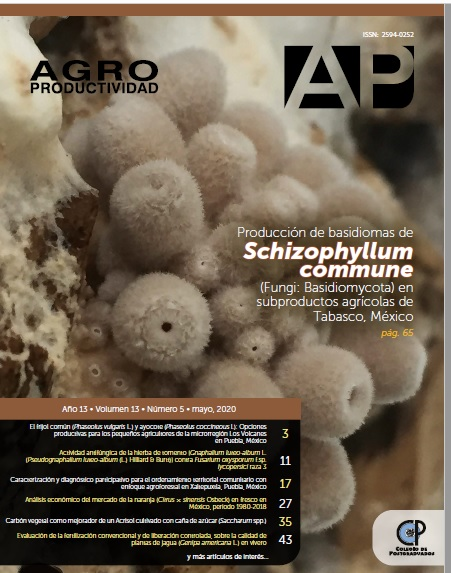The mushroom Pleurotus ostreatus (Jacq. ex Fr.) , and their added value: case study MUSHROOMS (Pleurotus ostreatus) AND THEIR ADDED VALUE
Main Article Content
Keywords
Food safety, edible mushrooms, sausages, jam
Abstract
Objective: The objective of this work was to evaluate the recognition of mushroom fungi (Pleurotus ostreatus) and the acceptance of their products made in Champotón, Campeche.
Design/methodology/approach: A survey was applied to a non-probabilistic sample of 100 people from Sihochac and Santo Domingo Kesté to assess the recognition of edible fungi. Three types of sausages and two types of jam were made; These products were valued by a panel of 62 untrained tasters, on a hedonic scale of pleasant, unpleasant and neutral. Bromatological analyzes were performed on the processed products.
Results: The edible fungus is known in the communities of Champotón, Campeche, but is little consumed. All by-products had good acceptability values, such as smell, color, taste and appearance.
Limitations on study/implications: Although the elaboration of products based on Pleurotus ostreatus is a good alternative for its consumption and commercialization, the inhabitants of the municipality of Champotón, Campeche, do not know the process of elaboration, so it is necessary to publicize its procedure.
Findings/conclusions: It was found that the elaboration of edible mushroom by-products is a viable alternative for the diversification of products made with mushroom mushrooms. In addition to these by-products have a good acceptance by the inhabitants of the municipality of Champotón, Campeche.

